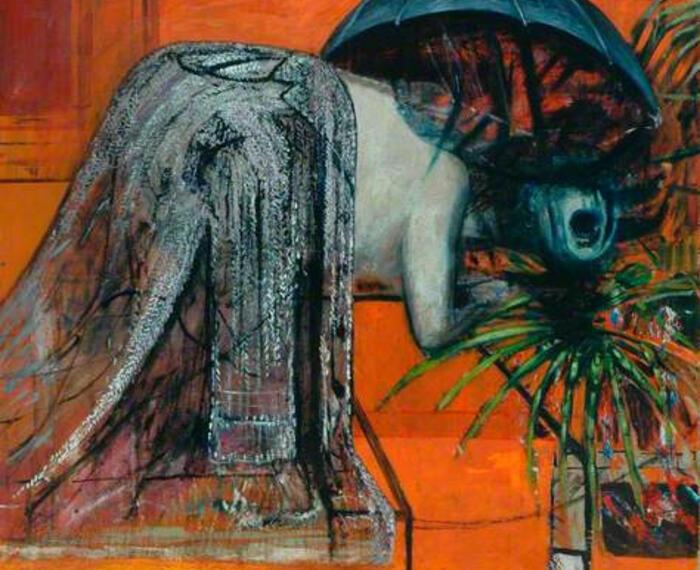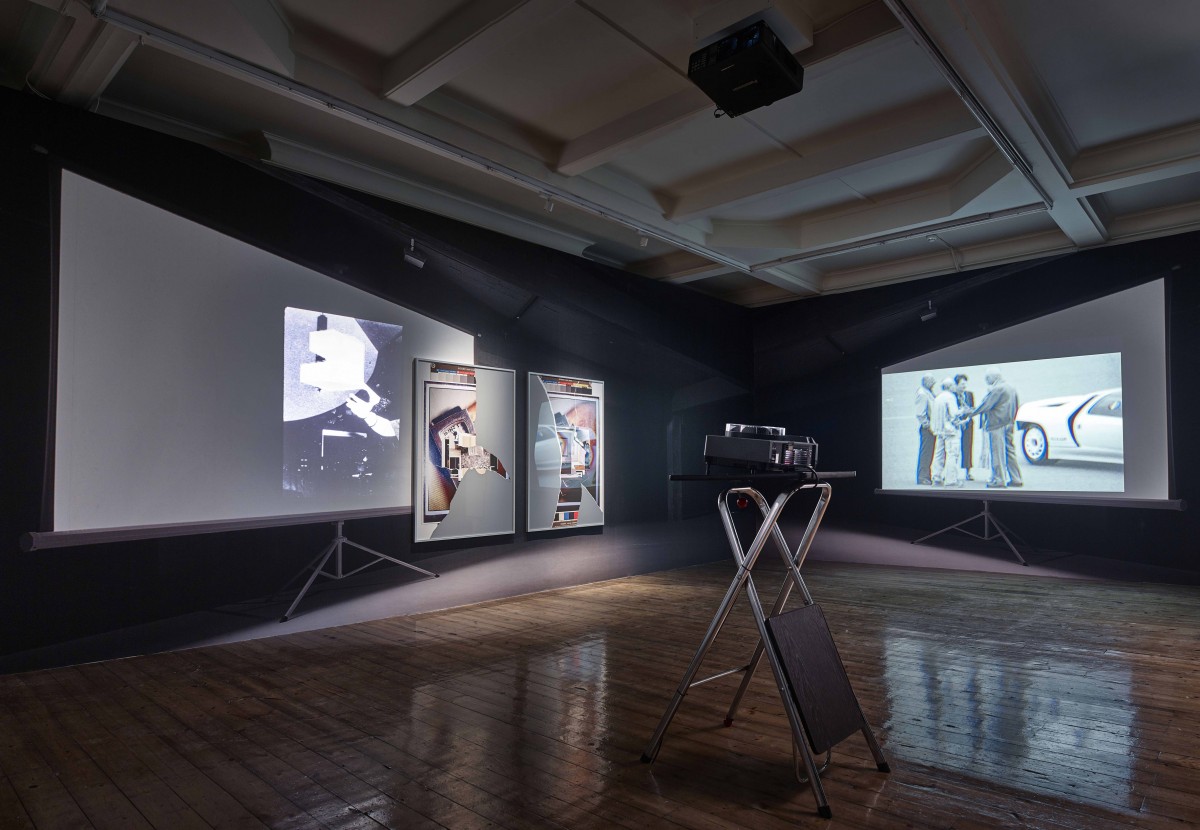


David Maljkovic, installation view, Sprüth Magers London, 10 April - 9 May, 2015. Courtesy of the artist and Sprüth Magers
Given the focus on today as a very particular moment in this country’s political history, perhaps it is interesting to look at an artist for whom shifts, repetitions and rips in time are at the heart of his work. David Maljkovic was born in Zagreb, in the former Yugoslavia in 1971, where he still lives and works. He has become known in recent years through a long string of solo exhibitions in some of Europe’s most respected public galleries: Palais de Tokyo in Paris last year, Baltic Centre in Gateshead in 2013, Kunsthalle Basel in 2012, the Reina Sofia museum in Madrid in 2009 and New York’s MoMA PS1 in 2007 to name but a few. In all of them he has examined themes relating to memory (specifically memories of the former Yugoslavia) and the utopian political theory of the mid-20th century that informed the architecture and art, as well as the wider society of that part of Europe.
Maljkovic works with slide projections, collage and moving image – both found and of his own – to create installations that enmesh the viewer in open loops of meaning; arcing back and forth in time through layers of material so that interpretation becomes something protean and meshed with our own memories. The current show, his second at Sprüth Magers in London, deploys his familiar gamut of display strategies to create further ambiguities: the walls of the gallery are papered with scaled up, black and white installation shots of his show at the Palais de Tokyo. Suddenly we are in two galleries simultaneously, the actual space extended into the memory of the Paris one. Prominent in the image is a blank projection screen. Installed on top of this is a projected slide, again an image of an earlier work, photographed digitally and then turned in to an old-fashioned, nay semi-obsolete, technology.
Alongside these games hang a series of collages, called New Reproductions, which use Kodak colour control patches and greyscales as a visual metaphor for some sense of objective reality, of fixity of material and meaning. In the margins of collages of ripped and layered inkjet prints, these talismans of objectivity serve only to point up the unreliability of the evidence offered.
Projected on to the back wall of the gallery is black and white footage showing retired engineers walking on the track of the Peugeot test track in France. The film quality is grainy, with odd coloured outlines around the figures that disrupt the documentary, fly-on-the-wall feel and once again undermine the veracity of the film as historical document. The figures walk about unselfconsciously, examining the futuristic cars at the test facility, and we imagine them dreaming of a future that never materialised.
This is a substantial and fascinating show that fully elaborates the concerns at the heart of Maljkovic’s work. Highly recommended for this weekend when some of us may be slowly pulling focus on a future that was not predicted.
Caroline Douglas
Director
Sprüth Magers, 7a Grafton Street, London W1S 4EJ. Exhibition continues until 9 May 2015. Open Tuesday - Saturday 10.00 - 18.00.www.spruethmagers.com